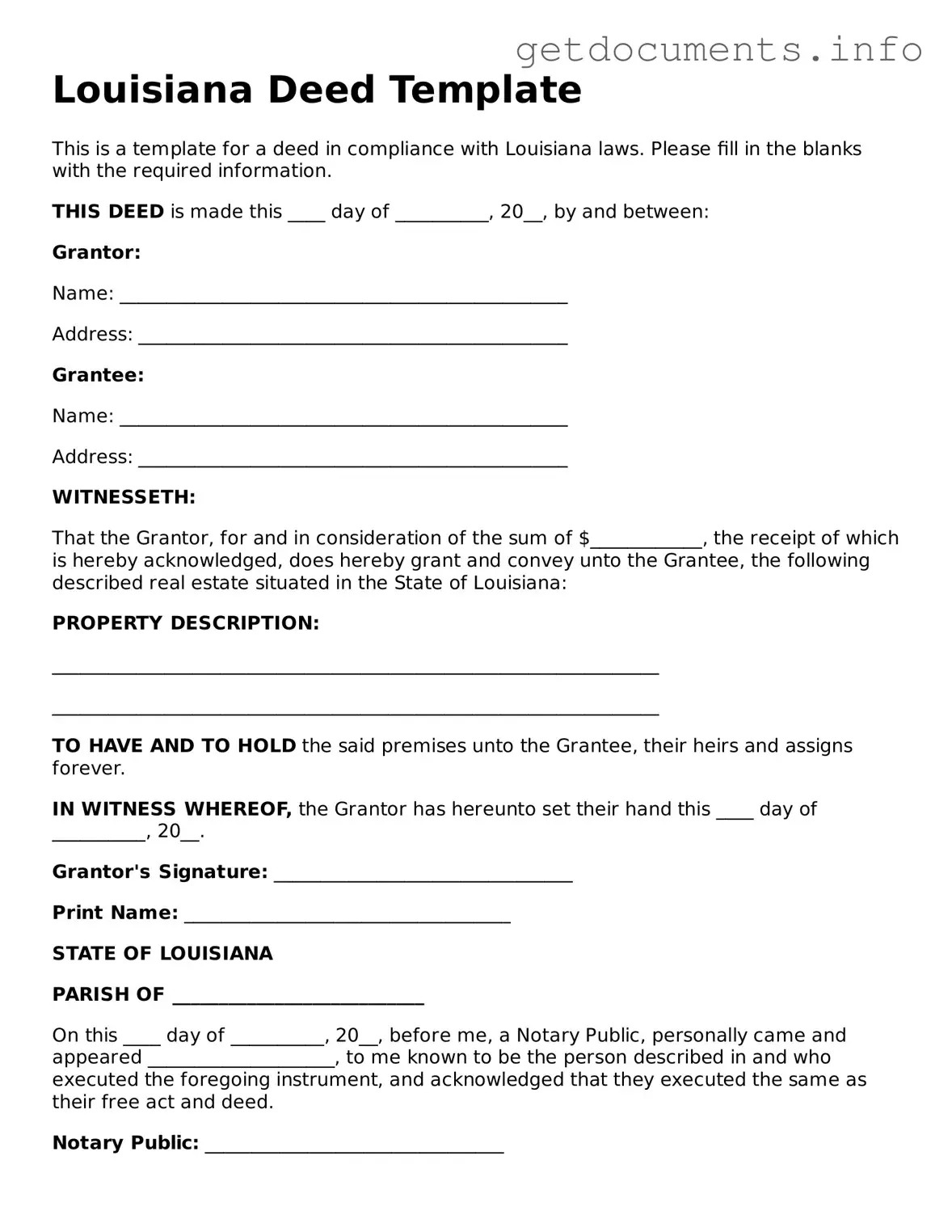Free Deed Template for Louisiana
A Louisiana Deed form is a legal document used to transfer ownership of real property from one party to another within the state of Louisiana. This form outlines the details of the transaction, including the parties involved and the property description. To ensure a smooth transfer of ownership, consider filling out the Louisiana Deed form by clicking the button below.
Access Deed Editor

Free Deed Template for Louisiana
Access Deed Editor
Got places to be? Complete the form fast
Fill out Deed online and avoid printing or scanning.
Access Deed Editor
or
⇩ PDF File
